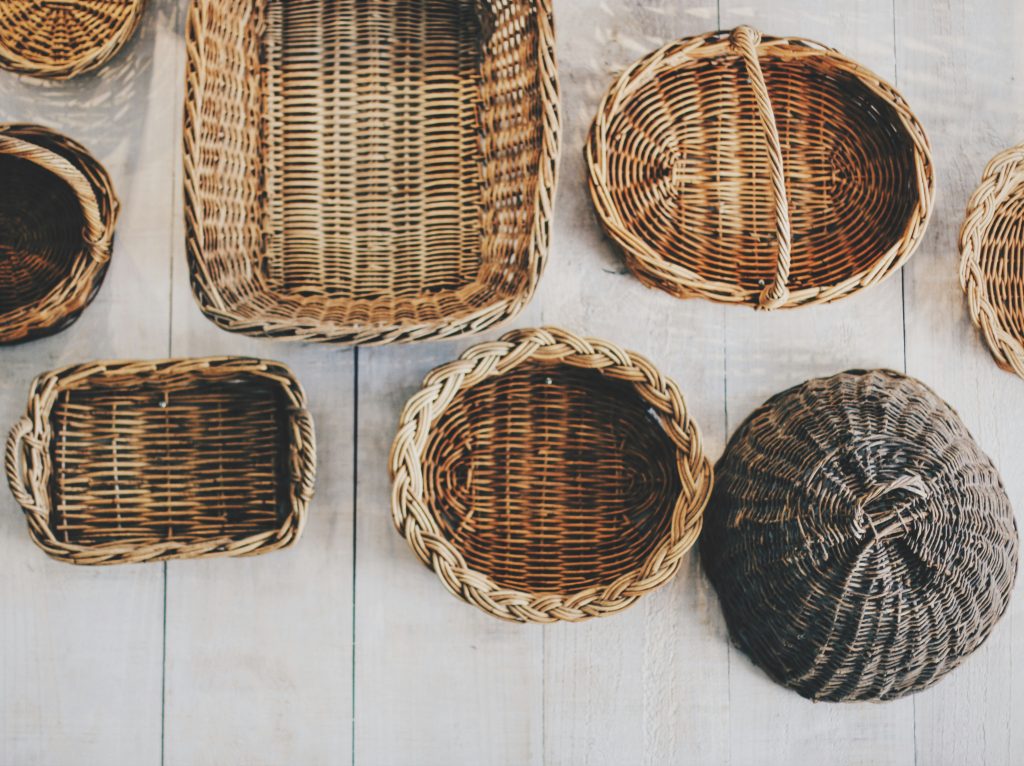
I’m still niggling with the idiom “the world is going to hell in a handbasket” and why I felt like I needed to inject my own voice into that phrase — to “make it positive”.
What bothers me about it?
For one, it is a particular worldview that I suppose is dischordant with mine.
I think the world is better than in the past. I think it can get even better, more equitable, fairier, kinder and more just. I think we (as a species) can dramatically adapt the way we use Earth’s resources, but that we aren’t yet at the stage where the right people with the right sort of power and influence can make that happen quickly. We’re in slow cycles, with urgent words in a noisy world. This is a problem because we have incredibly vulnerable people with quieter voices, who are not being heard.
In the meantime, by not leaving room for quieter, reasoning voices, we are quick to make everything about the future about encountering monsters. Monsterous things await in that fear of the future. Everything is a duopoly, one of two-sides, either good or bad with no time for the in-between.
I wonder if we are more aware that we do tend to demonise things in a way that harms, than we have ever known before. Our mental models, dominated by the monsters, seem to keep us in language cycles of despair and fear. Staying optimistic feels like rebellion.
When I think of the far future, my visions hold positive, even if they are naive, because imagination is allowed to be naive. I may live for a fantasy world, but that fantasy doesn’t involve a world without the monsterous. It’s a place in-between.
I don’t know if I am optimisic or hopeful. I don’t really understand the difference between these two states, but I know the place in-between them and I know that I am full of that feeling about the future. It’s why I care about how we learn things.
English naturalist and conservationist Jane Goodall, says this in her book The Book of Hope: A Survival Guide for an Endangered Planet:
“hope and optimism are not the same thing”
Jane Goodall, 2021
Kari Grain in Critical Hope mentions different types of hope, including:
deep hope
commanding hope
radical hope
revolutionary hope
complex hope.
Does this mean there is critical optimism too?
I don’t know.
In Being Ecological, Timothy Morton says:
“the future emerges from the objects we design” (p. 25).
It seems my basket is fairly full of something, but I don’t really know what that something is.
I don’t feel we are going to hell in a handbasket, being lowered by unknown hands, into doom. I acknowledge that a lot of people do feel this way too and I don’t want to change their mind. I think we need this point of view, it’s vital to be in touch with the potential of doom too.
I feel increasingly uneasy with the premise that the intent of education is to change mindsets, from good ones, to bad ones, when it comes to the future — to sustainable ways of existing on our planet. For learning that envisions the future, such diversity of attitudes, beliefs and worldviews surely needs to be part of our understanding. If we are intent on the making everyone shift to the “other, better” way of perceiving, we alienate and isolate others.
So, to try to move on from being bothered about why I put my own voice into a phrase, the world is going to hell in a handbasket, I think it’s because I acted to shift something that somone expressed. I felt obliged to move it to “the other side”, to put hope into doom. I don’t want be an editor of other voices, writing things in.
I am now looking for older stories, way before Dante and Grimm were writing things down.
I was learning this week about the incredible Tasmanian Aborginal cultural practice of basket weaving by the palawa people of Lutruwita. I realised while watching, that baskets really are the very basic, most essential and universally pragmatic expression of making something for sustainable resource gathering. Our resource-gathering baskets have scaled up, immensely from these handbaskets. Our baskets are big and getting even bigger. Whether baskets are made of grass to gather food or hold objects, or made of kelp to hold water, or now our scaled-up vast concrete baskets that can hold everything, baskets began as objects we designed within every culture.
Baskets began as an object to help you to take only what you individually can carry in your arms.
A small burden.
